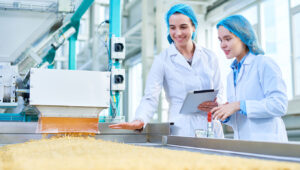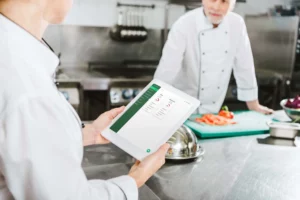Introduction – Why Food Safety Is More Important Than Ever
In Australia, food safety isn’t just about following rules—it’s about protecting people and building trust. With strict regulations and consumers who expect the highest standards, businesses can’t afford mistakes. Yet, traditional food safety methods are showing their age. Paper checklists, manual logs, and last-minute audits leave plenty of room for error.
This is why more businesses are embracing food safety software. Digital solutions are transforming how compliance is managed, making it easier, faster, and far more reliable. From small cafés to large-scale manufacturers, technology is quickly becoming the backbone of food safety in Australia.
See more: Food Safety Software in Australia: How Technology is Transforming Compliance and Quality Control
The Challenges of Traditional Food Safety Practices
For years, food businesses have relied on pen-and-paper systems to record temperatures, cleaning schedules, and compliance data. While familiar, this approach comes with several issues:
- Human Error – Staff may forget or make mistakes when filling out records.
- Time-Consuming Processes – Collecting and storing paperwork takes time that could be better spent serving customers.
- Compliance Risks – Missing or incomplete records can put businesses at risk of fines during inspections.
- Poor Transparency – Without accurate, centralised data, it’s difficult to track problems or spot recurring issues.
In a country where food safety regulations are strict, these traditional methods leave businesses exposed.
How Food Safety Software Works
Food safety software replaces paper-based systems with smart, automated tools designed to streamline compliance. Key features often include:
- Real-Time Monitoring – Digital sensors continuously track temperatures and storage conditions, instantly alerting managers to issues.
- Automated Compliance Checks – Built-in standards aligned with Australian regulations help businesses stay audit-ready.
- Digital Reporting – Reports are generated automatically, reducing paperwork and making inspections simple.
- Task Scheduling & Reminders – Staff receive notifications for safety checks, ensuring nothing is overlooked.
By integrating these features, food safety software turns compliance from a stressful task into a smooth daily routine.
Benefits for Australian Businesses
For businesses across hospitality, retail, and production, food safety software brings clear advantages:
- Efficiency – Automation saves staff hours of manual record-keeping.
- Cost Savings – Preventing spoilage and avoiding fines protects profits.
- Risk Reduction – Real-time alerts allow issues to be fixed before they cause harm.
- Customer Trust – Demonstrating high standards reassures customers and strengthens brand reputation.
In an industry where reputation can make or break success, these benefits are game-changing.

Case Examples or Real-Life Applications
Imagine a busy restaurant in Sydney. Instead of relying on staff to check fridge temperatures, sensors feed data directly into the system. If something goes wrong overnight, the manager receives an instant alert, preventing food loss and safety risks.
In a large-scale food production facility in Adelaide, software tracks every batch from raw materials to packaged goods. This traceability makes recalls faster, easier, and less damaging to consumer confidence.
Even supermarkets are reaping benefits. Automated compliance logs replace piles of paperwork, ensuring storage conditions consistently meet Australian standards.
The Future of Food Safety Technology in Australia
As technology continues to evolve, food safety solutions are becoming more powerful and predictive. Future trends include:
- Artificial Intelligence (AI) – Analysing patterns to predict potential risks before they occur.
- Internet of Things (IoT) – Expanding connected devices to monitor entire supply chains in real time.
- Predictive Analytics – Helping businesses forecast equipment failures or contamination risks, allowing preventive action.
These innovations mean food safety will become more proactive, allowing businesses to solve problems before they impact customers.
Conclusion – A Smarter Way Forward
Food safety has always been a cornerstone of Australia’s food industry. But the way businesses achieve it is changing. Food safety software offers smarter, more efficient tools to manage compliance, reduce risks, and build trust.

Be First to Comment